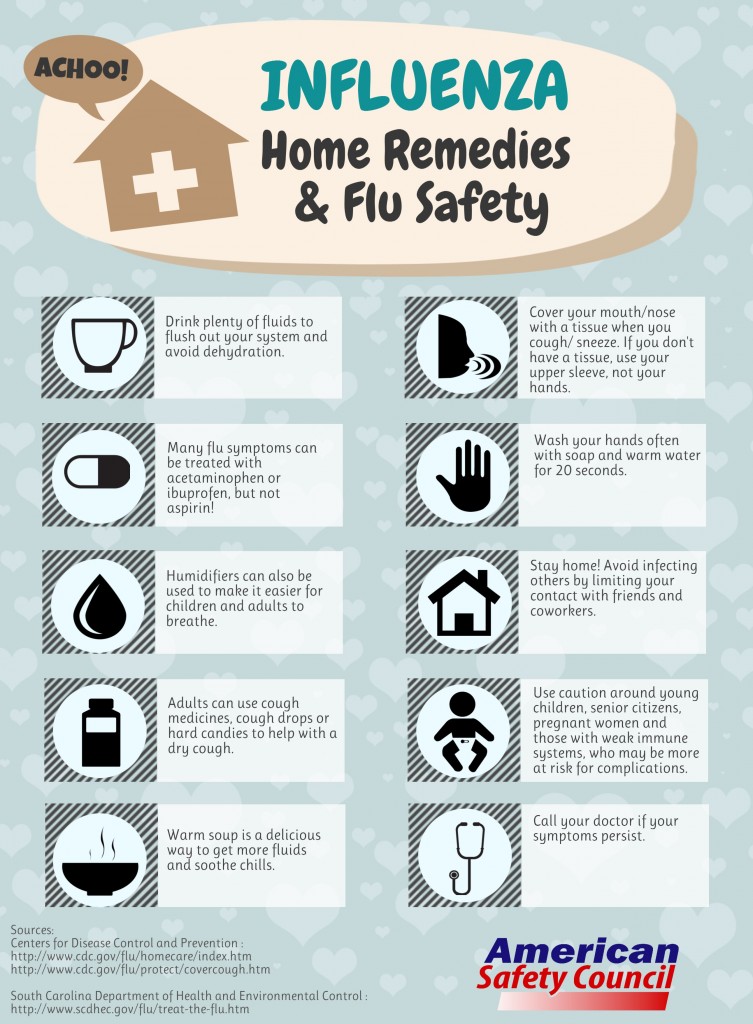Flu Facts You Need to Know
In order to promote a healthy and safe holiday season, the American Safety Council presents: Flu Prevention Week!
Part one of our series is an article on flu facts that will help keep you and your loved ones from getting sick.
Flu Facts
What we call “the flu” is actually the influenza virus which is an infection of the upper respiratory system. Many people confuse the cold and the flu, but they key difference is that the flu is mostly in your lungs and may cause a slight runny nose with clear discharge. A severely congested or runny nose is typically a cold symptom, not a flu symptom.
The most common way for the flu to spread is by breathing in the germs, usually when an infected person coughs or sneezes. It is also possible to catch the virus by touching a surface that has the flu on it, then touching your mouth, nose, or eyes. This is why hand washing is especially important during flu season. It is also why it is crucial to stay away from those who are infected, or to stay home if you are infected.
There is no such thing as the stomach flu. If you are nauseous or experiencing diarrhea you have a different type of virus or a bacterial infection.
Typically the first symptom of the flu is a high fever over 100 degrees. Children are more susceptible to high fevers than adults.
You do not need to see a doctor just because you have the flu. For most adults, the symptoms will go away on their own and can be treated in the meantime with plenty of rest, plenty of fluids, and acetaminophen or ibuprofen (do NOT use aspirin). Children and the elderly are more likely to experience flu complications, so they may need to see a doctor if they come down with the flu. Anyone who has any sort of condition that can also be complicated by the flu should consult with a doctor as well.
The people most at risk for flu complications include:
- People over age 65
- Children younger than 2 years
- Pregnant women
- Those living or working in long-term care facilities
- People with chronic lung, kidney, or heart conditions or a weak immune system
If your flu symptoms are still very bad after a few days of rest, you should call your doctor.
You can be contagious before you even know you’re sick. The virus incubates in your system, so you could infect others a full day before symptoms even start to develop. All the more reason to cover your mouth when you sneeze!
Need a way to remember or easily share this info? Our handy Influenza Infographic can help spread the word about not spreading germs!
Categorized in: Flu Prevention Week, Safety Tips

